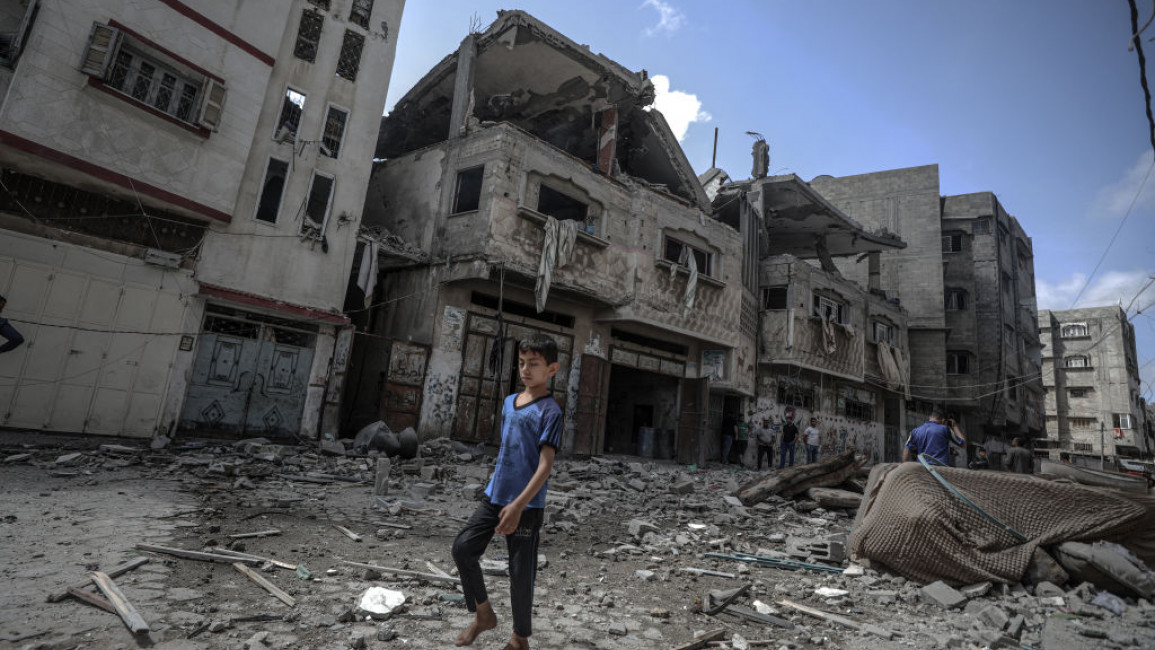Israeli Supreme Court rejects petition to reopen investigation on killing of 4 boys during 2014 Gaza war
The Israeli Supreme Court rejected a petition on Sunday filed by the various human rights organisations and parents of four children who were killed by an Israeli airstrike while they were playing on the beach in Gaza City during Israel's war on the besieged coastal enclave in 2014.
The petition was filed in 2020 by three human rights organizations, the Legal Center for Arab Minority Rights in Israel (Adalah), Al Mezan Center for Human Rights, and the Palestinian Center for Human Rights.
The petition demanded that the Israeli Supreme Court overturn the Israeli Attorney General's (AG) decision to reject an appeal to reopen a criminal investigation and prosecute those responsible for the killing of the four minors.
On 9 September 2019, the Israeli Attorney General fully adopted the decision by the Military Advocate General (MAG) to close the investigation.
“Israel clears soldiers in 2014 Black Friday Gaza assault“ https://t.co/W6TgM6YO8p pic.twitter.com/cNq2VgnUyX
— The New Arab (@The_NewArab) August 17, 2018
In a press statement sent to The New Arab, the petitioners argued that the evidence garnered during the investigation shows that the Israeli air force intentionally attacked the children, which is a war crime.
The petitioners also presented evidence that indicates significant flaws in the investigation conducted by the Israeli authorities, including numerous inconsistencies in the process and testimonies.
Despite these factors, the Israeli Supreme Court ruled that it saw no reason to interfere with the prosecutor's decision and did not address any of the plaintiffs' arguments regarding major flaws in the investigation.
On 16 July 2014, during the 51-day Israeli war on the Gaza Strip, an Israeli military drone targeted seven children of the Bakr family who were playing soccer on the Gaza beach under the pretext that there was a movement of armed elements on the beach.
The Israeli attack killed Zakaria Bakr, 10, Ahed Bakr, 10, Ismail Bakr, 9, and Mohammed Bakr, 11, and wounded the remaining three.
"Although several years have passed since the Israeli crime took place, I still remember it as if it happened yesterday. My son was playing football with his cousins in front of my eyes on the seashore, but they were bombed and torn to pieces by the Israeli warplane," Mohammed Bakr, Ismail's father, said to The New Arab.
"No one can imagine how much pain we are going through all these years, especially since the killers are still free and can kill more children in Gaza," he added.
For Ahed Bakr, Zakaria's father, the situation is similar. He feels extreme sadness over the fact that he has not been able to hold to account and punish those responsible for killing his son and his friends.
"We are still living the tragedy of the four children's martyrdom as if it happened yesterday. Life has become very difficult, Israel stole everything beautiful in our lives," he said.
"Every day, when I'm awake or asleep, I see my child's torn body after being subjected to Israeli bombardment... I feel that time has stopped since that moment when my family's children were killed. The sadness does not leave us, joy has vanished from our homes," Bakr added.
"What is the fault of my son and the children who played with him? They were playing, not carrying weapons or missiles. Israel killed innocent people who were playing on the seashore in an area far from all military and security sites," he said.
Both fathers are not surprised by the Israeli Supreme Court's decision to reject the petition.
"We expected such an unjust decision, how can a criminal state like Israel condemn itself before the world for killing innocent children... It will certainly deny this accusation, and the silence of the international community, human rights institutions and the United Nations encourages it to do so," both the still-grieving fathers said.
They said they will carry on the fight by filing complaints against the Israeli army to the International Criminal Court and will continue to file cases against Israel until they get justice and "those responsible for crimes against children in Gaza" are punished.
Analysis: Will an ICC probe into Israeli war crimes finally bring justice to Palestinians? - @emadmoussa reports https://t.co/C4spjwPvpp
— The New Arab (@The_NewArab) August 29, 2021
For its part, the Israeli court based its decision that the rocket attacks by Israel's military drones were carried out "in accordance with the principles of distinction and proportionality" and in accordance with military procedures that the Israeli army claimed that the perimeter of the targetted area was being used by the Palestinian resistance.
The Israeli court also rejected the petitioners' claims about a conflict of interest inherent in the dual role of the Military Prosecutor, in which the Military Prosecutor provides legal advice to the military before and during military operations and, at the end of hostilities, also decides whether and how a criminal investigation should be launched and conducted.
"Under this ruling, the Supreme Court grants full license to the Israeli army to kill civilians with the widest impunity. Rather than examining the military's decisions during combat, the court has generally stated the broad scope of the prosecutor's and military prosecutor's discretion,” the petitioners said in the statement.
According to the Euro-Mediterranean Human Rights Monitor report on the 2014 Israeli war on the Gaza Strip, 2,174 Palestinians were killed, including 530 children, and 10,870 others were injured, including 3,303 children. 145 Palestinian families lost 3 or more of their members during single attacks by Israel.



